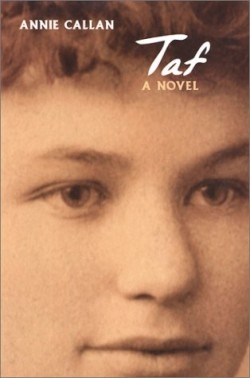Taf
Afraid that she has accidentally killed her two-year-old stepbrother, thirteen-year-
old Taf runs from her mother and abusive stepfather. The story begins in Idaho in 1915. As she runs away, Taf hears the song of the silkies running over and over in her mind—the Scottish folktale about a sea creature that can change shape and become human. Her father had told her the silkie story many times before he left the family to seek fame and fortune as a cowboy.
Taf meets a boy who tells her that he has just completed a book about the cowboys in Oregon’s Wallowa Mountains, and she knows she must go there to find her father. Along her journey to Oregon, she finds people who care about her. Winter finds her stuck in Pendleton, Oregon where a good-natured woolen salesman helps her find a room and introduces her to a half-Chinese, half-Indian youth with whom she falls in love. After landing in jail for reacting violently to a racial injustice, she is given the chance to move in with and care for an ailing mother and her two children. A young sheriff’s deputy falls in love with her and asks Taf to marry him. Taf is torn between the security offered by the deputy and the family who needs her, and her love for the Chinese-Indian.
Confused, Taf sets out once again, determined to find her father. As she moves on she has “a vision of the silkie. Surely the best part of becoming human was the exact instant he shed his own skin… before he took on another world entirely.” Seems that Taf, too, keeps shedding skins and moving on to new worlds. “It was the journey itself that counted.”
The author, an accomplished Irish poet who lives in American’s Northwest, has written a tender and sensitive story of a young girl in search of herself. She has blended fact, such as the local annual rodeo and local discrimination against the Chinese and the Indian, with fiction to weave a story of interest to the modern teen who feels the universal struggle between adventure and security.
Reviewed by
Linda Cooley
Disclosure: This article is not an endorsement, but a review. The publisher of this book provided free copies of the book to have their book reviewed by a professional reviewer. No fee was paid by the publisher for this review. Foreword Reviews only recommends books that we love. Foreword Magazine, Inc. is disclosing this in accordance with the Federal Trade Commission’s 16 CFR, Part 255.

